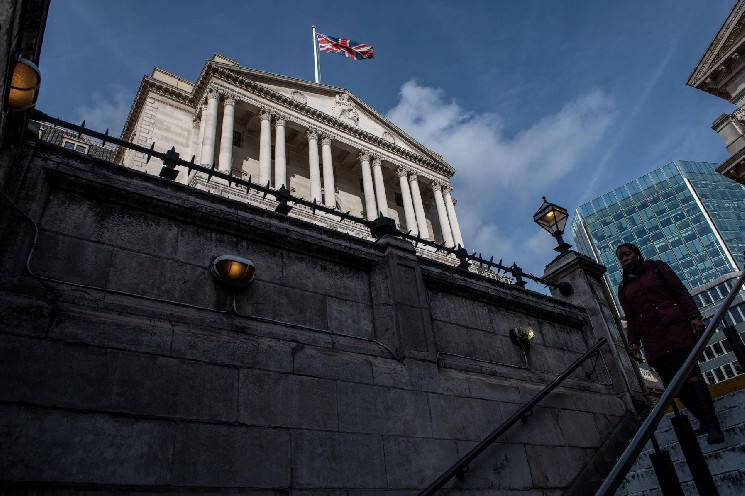UK Faces Privacy Challenges Ahead Of 2025 CBDC Pilot

As the UK prepares for a Central Bank Digital Currency pilot in 2025, critics warn that it could introduce unprecedented levels of state surveillance. While CBDCs promise to modernize the financial system, experts from organizations like Big Brother Watch argue that the government may not prioritize privacy.
According to Susanna Copson, Legal and Policy Officer at Big Brother Watch, “The case for a UK CBDC still has not been made—especially given the risks to privacy, equality, and even potentially freedom of expression. The Bank of England and Treasury must justify why overhauling our financial landscape with a CBDC is necessary and clearly outline how the public will be protected from the extensive catalog of risks.”
Big Brother Watch, an organization focused on protecting civil liberties, has raised concerns about privacy in the digital age. They argue that without strong safeguards built into the framework of a CBDC, the risk of data misuse could rise, compromising personal freedoms.
Addressing UK CBDC Privacy Concerns
The Bank of England has been consulting on the CBDC’s design, but most people still need to know what it involves. To raise awareness and give citizens a voice in the future of CBDCs, organizations like Big Brother Watch are working to inform the public and encourage participation in government consultations. They urge people to reach out to their MPs and engage in public forums discussing the implications.
Copson further highlights an important issue, noting that “With the Bank of England ruling out a digital pound which is anonymous, there is a real danger that this form of digital money is on track to be a digital spycoin.” She adds that “while the previous Government’s pledge to legislate against programmable digital money that restricts spending was a positive step, we need further assurances from the new Government and more clarity on how other privacy safeguards would work in practice.”
Global Lessons On CBDC Adoption
The UK can learn valuable lessons from the challenges faced by other countries implementing CBDCs. Despite its authoritarian control, China has struggled with adopting its digital yuan. Although China is ahead of most nations in CBDC development, the public remains largely uninterested. Factors like the dominance of private payment platforms such as Alipay and WeChat Pay and unease over privacy and government control have led to low wallet balances and limited active usage.
Nigeria’s eNaira has seen little success, with less than 0.5% of the population using it. Efforts to push adoption, including restrictions on cash and offering payment incentives, led to public dissatisfaction and even protests. A lack of public trust and inadequate infrastructure contributed to its failure.
Both countries show the importance of public trust, strong infrastructure, and clear communication of CBDCs’ benefits. The UK should establish an independent body to oversee data protection and privacy to avoid similar obstacles and ensure transparency and accountability.
The House of Lords Economic Affairs Committee described the UK’s proposed CBDC as “a solution in search of a problem,” suggesting that its benefits may be overstated while posing risks to financial stability and privacy . The UK’s CBDC efforts could face similar challenges without addressing these foundational issues.
The challenge is to protect personal data from misuse and prevent an erosion of civil liberties. The increasing use of facial recognition, restrictions on free speech, and UK financial surveillance proposals are already raising alarms. The introduction of a CBDC could worsen the situation if privacy is not treated as a fundamental right.
In the UK, privacy is a fundamental human right under Article 8 of the European Convention on Human Rights, which protects the right to respect for private and family life, home, and correspondence. This right is also incorporated into domestic law through the Human Rights Act 1998, ensuring individuals have the legal backing to safeguard their personal information from misuse.
Despite these legal protections, privacy is increasingly being compromised, particularly by the pervasive reach of tech companies. These companies often operate in a grey area, where their data collection practices evade proper scrutiny. This is a widespread issue with large corporations like Google, Facebook, and others, who collect and monetize personal data with minimal transparency.
Private vs. Public Data Control
There is an important distinction between private companies collecting data and the state accessing personal information. While private companies may misuse data for commercial purposes, state access to personal information could enable invasive tracking and control of financial behaviors. This raises larger risks to civil liberties and individual freedoms.
Time For Transparency
Organizations like Big Brother Watch are pushing for more transparency as the 2025 pilot approaches. While there have been rumors that the pilot timeline may be delayed and focus more on wholesale rather than retail applications, the Bank of England has yet to provide clear details. This ongoing uncertainty raises further concerns about how privacy will be safeguarded in the final design. The House of Lords has already signaled concerns, and amendments to the CBDC proposal are likely.
Forbes has reached out to key organizations involved in the development. According to one source, there may be delays in the pilot timeline, with a shift in focus toward wholesale applications rather than retail.
Political engagement will be important to ensure that privacy concerns are not sidelined. As technological advances outpace the law.
The Future Of Privacy In A Digital World
The UK’s CBDC pilot could reshape finance and how money works. But without clear protections, it risks eroding civil liberties in the process. The clock is ticking for the UK to get this right. The upcoming pilot offers an opportunity to build a system that balances innovation with civil rights. But without public scrutiny and political pressure, the risks may outweigh the rewards.





 Bitcoin
Bitcoin  Ethereum
Ethereum  Tether
Tether  Dogecoin
Dogecoin  USDC
USDC  Cardano
Cardano  TRON
TRON  Chainlink
Chainlink  Stellar
Stellar  Hedera
Hedera  Bitcoin Cash
Bitcoin Cash  LEO Token
LEO Token  Litecoin
Litecoin  Cronos
Cronos  Ethereum Classic
Ethereum Classic  Monero
Monero  Dai
Dai  Algorand
Algorand  OKB
OKB  Cosmos Hub
Cosmos Hub  Stacks
Stacks  Theta Network
Theta Network  Gate
Gate  Maker
Maker  KuCoin
KuCoin  Tezos
Tezos  IOTA
IOTA  NEO
NEO  Polygon
Polygon  Zcash
Zcash  Synthetix Network
Synthetix Network  Tether Gold
Tether Gold  TrueUSD
TrueUSD  Dash
Dash  Holo
Holo  Zilliqa
Zilliqa  Enjin Coin
Enjin Coin  0x Protocol
0x Protocol  Qtum
Qtum  Basic Attention
Basic Attention  Siacoin
Siacoin  Ravencoin
Ravencoin  Bitcoin Gold
Bitcoin Gold  Decred
Decred  NEM
NEM  DigiByte
DigiByte  Ontology
Ontology  Nano
Nano  Status
Status  Huobi
Huobi  Hive
Hive  Lisk
Lisk  Waves
Waves  Numeraire
Numeraire  Steem
Steem  Pax Dollar
Pax Dollar  BUSD
BUSD  OMG Network
OMG Network  Ren
Ren  Bitcoin Diamond
Bitcoin Diamond  Bytom
Bytom